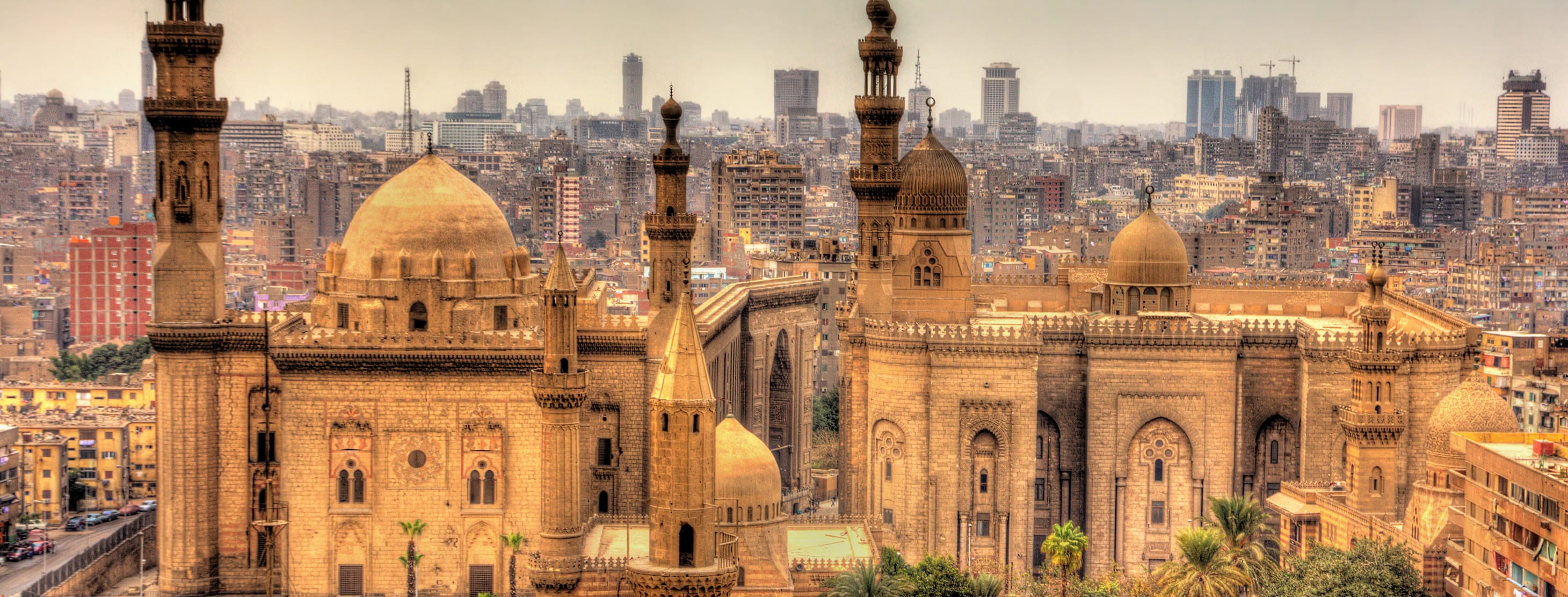Why Study in Egypt?
“Egypt is a great place for contrasts: splendid things gleam in the dust.” While French writer Gustave Flaubert penned these words more than a century and a half ago, they are still apt today -- and perfectly applicable to studying in this fascinating and historic destination. Here’s a closer look at five reasons to study in Egypt.
- Education

“Egypt is a great place for contrasts: splendid things gleam in the dust.” While French writer Gustave Flaubert penned these words more than a century and a half ago, they are still apt today -- and perfectly applicable to studying in this fascinating and historic destination. Here’s a closer look at five reasons to study in Egypt.
1. It boasts a rich academic heritage.
Egypt spent centuries as the Mediterranean world’s preeminent civilization and has flourished continuously for thousands of years. Throughout that time, education has been held in high regard. According to Legends & Chronicles, “It is not possible to trace the exact history of ancient Egyptian education system. What we are clear of today is that a certain form of education system existed throughout the known history of ancient Egypt.”
Given Egypt’s lasting legacy of education, it’s hardly a surprise that it’s got a lot to show for it, including the most Nobel Laureates in Africa and the Arab world.
The country is also known for producing many great scientists. In an interview with the British Council, Egyptian scholar Nancy Elhalfawy attributes the country’s success largely to its history.
“For 7,000 years, Egypt has inspired artists, writers, scientists and intellectuals. The pharaohs left a huge scientific legacy. They were the first to introduce mummification, medicine, agriculture, fermentation, engineering and architecture. The ancient Egyptians were pioneers in astronomy: their expertise played an important role in determining the annual flooding of the Nile, and aligning the pyramids towards the pole star. They were very interested in observing the night sky and phenomena associated with sun and moon. We still haven't worked out all the exact processes they used for mummification, which shows how skillul they were in chemistry,” she says.
Elhalfawy also points to the Egyptian spirit of trying and trying again. “As an Egyptian scientist myself, I think the answer to [to why Egypt has produced many top scientists] is that we don’t believe in the word impossible. Everything is possible if you think, experiment, and analyze,” she continues.
2. Its energy is inimitable.
Egypt is remarkably dynamic. From towering temples and the nourishing Nile to bustling bazaars and sophisticated cities, there’s truly no end of things to see, do and experience in Egypt. Allison DiLiegro writes in Forbes, “[On my] flight, when the pyramids came into view, I gasped and my stomach did a flip. The magnitude of the site is hard to comprehend and harder to describe. It was all tears and tingling — like my body understood the deep history in a way that my brain could not.”
She also describes Cairo as a “thrilling mess of a city, with raucous traffic, buildings the color of desert dust, and 22 million passionate residents.” Egypt is also home to an extraordinary display of revolutionary street art representing the country’s acknowledgment of the past hopes for the future. “Despite the continuous attempts to erase these drawings, they keep on showing up every time,” says Culture Trip.
3. It’s surprisingly affordable.
Egypt came in 114th out of 119 on NUMBEO’s Cost of Living Index by country for 2019 with a cost of living index of 26.46 -- relative to 121.16 for Switzerland, 74.85 for France, 72.08 for Australia, 65.28 for the UK and 65.01 for Canada.
Rents in Egypt are especially low at just 5.01, while groceries, restaurant prices, and local purchasing power come in at 23.19, 22.26, and 23.67 respectively.
So you will get a lot of bang for your buck in Egypt -- especially when compared to many of the most popular international study destinations.
4. It’s a melting pot of cultures.
Dating all the way back to ancient Egypt, the country’s history of colonization has lead to a unique intermingling of cultures and lineages between colonizing empires and indigenous people, according to anthropologist Stuart Tyson Smith, lead author of Entanglement and the Formation of the Ancient Nubian Napatan State, which appeared in American Anthropologist. In fact, ancient Egypt has been dubbed “the world’s first melting pot” due to its mix of cultures and ethnic traditions.
A 2005 Quadrennial Periodic Report submitted for the Arab Republic of Egypt by the Egyptian Ministry of Culture reiterated the country’s commitment to diversity through organizations like the Supreme Council of Culture (SCC) and the Egyptian Civil Society Organizations.
“Together, cultures could create a rich and strong tapestry and could be an engine for sustainable development for individuals, communities and countries. [...] In Cairo as well as major cities in Egypt, a large number of old Egyptian traditions remain from the time of the Pharaohs, and contrast with pure tribal customs brought in by many invaders throughout the centuries. That contradiction and contrast between areas of Egypt is what makes the singularity of the country as well as its culture’s features,” the report explains.
5. UNICAF programs open the door.
And people wishing to study in Egypt can no longer simply choose between local universities -- but leading universities all over the world! This means Egyptians can get a world-class education, while at the same time staying close to family and friends and not leaving this amazing, affordable country.
This is thanks to UNICAF, which is dedicated to making higher education accessible to everyone through collaborations with UK, US, and European universities. It offers online programs which help aspiring students overcome barriers to studying -- everything from balancing professional and academic commitments to avoiding traffic congestion while commuting to and from school.
And while Egypt is a cheaper international study destination than many alternatives, UNICAF can help you cut costs even more by allowing you to live outside the more expensive cities if you choose, while still taking advantage of the Egypt Learning Centre in Giza at your convenience. In fact, UNICAF students save up to 60 percent by studying online -- all with no sacrifice in the quality of education -- thanks to its internationally recognized degrees.
UNICAF also offers scholarship funding aimed at further supporting undergraduate and master’s students. In fact, UNICAF has awarded more than $90,000,000 worth of scholarships, with more than 90 percent of recipients reporting that the funding improved their lives and careers.
Click here to learn more about UNICAF scholarships and programs can help you achieve your goal of securing a prestigious international education.

Joanna Hughes
Author
Joanna worked in higher education administration for many years at a leading research institution before becoming a full-time freelance writer. She lives in the beautiful White Mountains region of New Hampshire with her family.
Find a program in these categories


